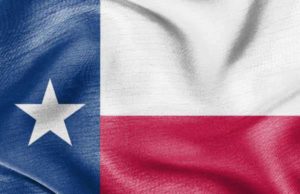
What are Title XVIII and XIX of the Social Security Act?
The Title XVIII and XIX amendments to the Social Security Act of 1935 established Medicare and Medicaid and were two of the most important achievements of the Great Society programs. These amendments derive the basis and administration of these programs and became law on July 30, 1965. The Social Security Act was the first program for the federal assistance to the elderly, and these amendments added provisions for healthcare that were intended to be part of the initial legislation.
What are the provisions of Title XVIII of the Social Security Act?
Title XVIII – Health Insurance for the Aged and Disabled created Medicare, a system that provides hospital insurance and supplementary health insurance for the elderly, persons aged 65 and up. People receiving Social Security Disability insurance are also covered.
The Introductory Sections (Sec 1801-1809) affirm the rights of patients and medical establishments to operate free of government influence and direction. Section 1802 for example, expressly prohibits federal and state authorities from impeding private contracts between doctors and patients that do not involve reimbursement from Medicare. Additional clauses list requirements for contracts between patients and doctors, responsibilities and agreements that would prevent reimbursement. Section 1804 provides for the ease of access to Medicare information, catered to the elderly with a toll-free hotline and notices that explain payment limitations as well as an explanation of benefits and long term care options. This section also defines terms to be used through the bill, such as “beneficiary.” Section 1808 provides for the administration of the program with guidelines for the hiring and compensation of employees that manage the program. Lastly, Section 1809 covers reports to Congress, data collection and procedures to measure the effectiveness of the program.
Part A of Title XVIII – Hospital Insurance Benefits for the Aged and Disabled
The provisions of this part cover impatient hospital stays with an initial deductible payment and copayments after 60 days. Patients may also be covered in a skilled nursing facility for up to a hundred days with the first 20 days paid in full and the remaining days paid via copayment. The hundred day limit is reset every time the patient goes sixty days requiring more treatment. Copayments and deductibles will change from year-to-year.
Part B of Title XVIII – Supplementary Medical Insurance Benefits for the Aged and Disabled
These sections (Sec. 1831 – 1848) are an optional provision that gives eligible persons the option to enroll in an insurance program that provides primarily outpatient care such as home health services, medical services such as x-rays and medical equipment such as canes and walkers. Section 1833 provides detailed breakdowns of services, particularly the proportion paid by patients versus coverage by Medicare. Section 1839 explains the procedure and formula that the Secretary of Health and Human Service must use to determine the yearly premiums for beneficiaries. Other provisions include Section 1847B that mandates the competitive process for acquiring medication for patients and Section 1848 that outlines procedures for reimbursing doctors.
Part C of Title XVIII – Medicare+Choice Program
As of 2003, the Medicare+Choice program, with the addition of prescription drug benefits have become Medicare Advantage programs. These programs allow a Medicare beneficiary to choose receive their Medicare benefits through a private health insurance plan. Medicare advantage plans represent approximately 19% of beneficiaries for a total of 8.2 individuals. Advantage plans usually have a network of medical professionals for patients to avoid extra fees for specialized services. These plans have been criticized for less-than-effective patient coverage and low patient satisfaction.
Part D – Voluntary Prescription Drug Benefit Program
This recent addition to Medicare is a federal program to subsidize the prescription drugs for the elderly and others that meet Medicare eligibility requirements. Patients receive these subsidies either though the Medicare Advantage plans described in Part C or a Prescription Drug Plan. This section provides a pricing tier for certain drugs and unequal subsidies guiding beneficiaries to select certain drugs, usually lower cost generic drugs over branded drugs. There are also provisions for catastrophes which significantly or eliminate copayments for impacted beneficiaries. After the initial auto-enrollment of beneficiaries in 2006, Medicare beneficiaries must now enroll in Part D between October 15 and December 7. This may be subject to a late enrollment penalty if the beneficiary enrolls during a period after he or she was eligible to enroll.
Drugs excluded from part D include erectile dysfunction medication, hair loss treatments, weight management medication, fertility treatments, cough, and cold relief.
What are the provisions of Title XIX of the Social Security Act?
Title XIX of the Social Security Act, also an amendment added in the 1960s, established Medicaid for low income families managed by state governments with contributions from the Federal government. Over time, Medicaid has become the biggest provider of health care for low-income Americans. In addition to medical care, dental care is also mandatory for children under the age of 21 that received Medicaid funding or Medicaid-funded plans.
How do states participate in Title XIX?
Every state except Arizona, which has its own healthcare system independent of the federal government, has state-run Medicaid program. The oversight for these programs is provided by the federal Centers for Medicare and Medicaid Services. States usually opt to disburse Medicaid funding to private insurers who in turn, enroll eligible persons for coverage. The private insurer gets a fixed amount from the state for doing so. The value of one’s home is not assessed in determining eligibility, so even seniors that own a home can qualify for both Medicare and Medicaid so as to maintain their independence and avoid nursing homes.
How does Title XIX differ from Title XVIII?
Medicaid and Medicare differ primarily due to the administration and eligibility requirements. Medicare is available to all, not assessed on individual needs and completely administered by the federal government. Medicaid however, is assessed on economic needs, mostly administered by states and covers a more comprehensive suite of medical needs. This reflects its aim in aiding low income families, especially children. Federal funds for Medicaid are done in matching relationship with state expenditures.
What are the intentions of Title XIX and Title XVIII?
The reason these provisions were added to the Social Security Act were to ensure the long term health of America’s most vulnerable populations. The availability of these funds are proven to induce participants to seek medical care, especially preventative care, which lowers the potential for potentially more serious ailments to occur and the possibility of uninsured burdens on the medical system. There are concerns over these programs being unfunded and potentially insolvent in the future owing to an aging population and increasing life expectancy.
Full text of provisions:
https://www.ssa.gov/OP_Home/ssact/title19/1900.htm
https://www.ssa.gov/OP_Home/ssact/title18/1800.htm






































